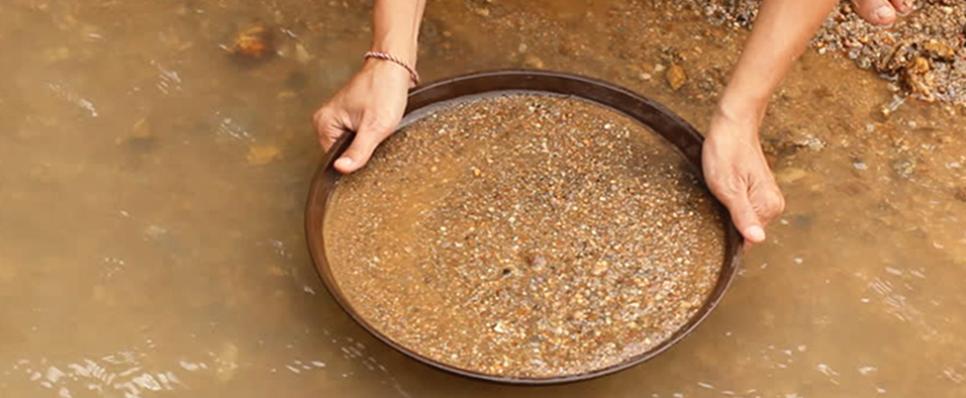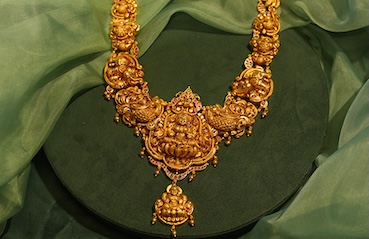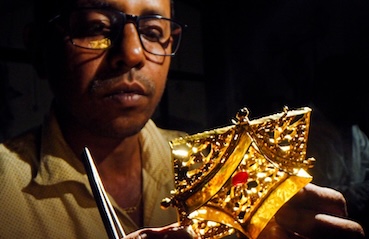Published: 11 Aug 2017
Gold Panning in India

Gold is a natural metal that can be found almost everywhere—streams, rivers, oceans, rocks, and the Earth’s crust. But did you know that people make a living of extracting gold from these sources?
Gold Panning
Gold Panning or Gold Filtering is a process of extracting gold from a placer deposit (an accumulation of valuable minerals formed by gravity separation during sedimentary processes), such as those found in rivers.
How does gold come into rivers?
Gold is said to enter water streams through the process of erosion which breaks down rocks found on the riverbed. When a river flows by a region having small gold deposits, it carries the gold with it. This gold then gets deposited along the bend of the river or downstream. Alluvial soil, often found on the banks of water bodies, is also known to have gold deposits. In fact, the name “placer” comes from the Spanish word placer meaning “alluvial sand”.
How is gold panning done?
You first collect the mud and sand flowing along the water. Then you place it in specially-designed wooden trays. These trays dissolve the mud, thus filtering the sand. Tiny gold particles then remain behind. You can get all the particles together and melt them This results in the formation of Quarry gold, generally considered to be pure gold. You can then sell the gold to jewellers and earn money.
Related: Who owns maximum gold in India?
Who does gold panning in India?
In India, gold panning is done by various communities, who fall under the larger umbrella of Gold Hunters.
One of these is the Sonajhar community of Chhattisgarh. They filter gold particles from the River Mahanadi that flows through the states of Chhattisgarh and Odisha in central India. For decades, the men and women of the Sonajhar community have been traditionally involved in collecting and filtering gold from the wet soil and selling it directly to local goldsmiths.
Gold filtering is the main source of income for such people. After one day of hard work, the community collects gold particles equivalent to the size of 4-5 grains of rice, thus earning close to Rs 400 per day by filtering.
Even the people from the Gond and the Pahadi Korwa tribe filter gold. They can be located on the banks of the IB River. Seer Khud- a perennial rivulet which flows through Bilaspur, Chattisgarh- supports the livelihood of a Himachal tribe called Daola.16 Aglote in Goa, on the river Ragada, has sands which are rich in secondary gold.17 Similarly, Chaliyar river in Malappuram, Kerala, saw a gold rush when people found gold in it.
Is this process legal?
There is no particular law that makes gold filtering illegal. However, enthusiastic gold panners often cross the line of the law in search of gold. This is because they enter land areas that belong to others. This can lead to trespassing of property. Plus, there could be legal troubles regarding the ‘ownership’ of such gold.
Related: Your guide to owning unclaimed gold
It can’t be denied that man can be quite ingenious, especially when in the search of a precious metal like gold.











